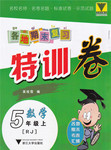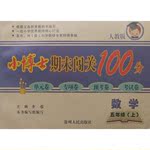题目内容
The work became ___.
- A.so harder
- B.much hard
- C.harder and harder
- D.as hard

 各地期末复习特训卷系列答案
各地期末复习特训卷系列答案 小博士期末闯关100分系列答案
小博士期末闯关100分系列答案One man tells of driving on a long and lonely road, the last 65 miles of it unpaved, in order to watch Indian dances in the state of Arizona. After the dances, he returned to his car only to find that it had a flat tire. He put on the spare and drove to the only service station in that town.
“Do you fix flats?” he inquired of the attendant.
“Yes,” came the answer.
“How much do you charge?” he asked.
With a twinkle in his eye, the man replied, “What difference does it make?”
This is what has been called a “Hobson’s choice”. A Hobson’s choice is a situation that forces a person to accept whatever is offered or go without.
According to Barbara Berliner, the phrase was inspired by sixteenth-century entrepreneur (企业家) Thomas Hobson. There was no choice by the customer — it was strictly Hobson’s choice.
But often we really have a choice, and the choice does make a difference. We may not always believe it. We may feel as if we have no choice, but almost always there is a choice in the matter. And when we realize that we do most things by choice, then we are taking control of our own lives.
Someone challenged me to try an experiment that completely changed my perspective. “For the next seven days,” he said, “eliminate the words ‘I have to’ from your vocabulary and say ‘I choose to’. Don’t say, ‘I have to work late tonight’. Instead, say, ‘I choose to work late’. When you choose to do it, you take control of your life. Instead of saying, ‘I have to stay home’, try ‘I choose to stay home’. The way you spend your time is your choice. You are responsible. You have control.”
In just seven days I was no longer saying “I have to” and I felt better about my decisions. I learned that there is very little in my life I actually have to do. You and I decide to do certain things because we believe that it will be for the best. When we eliminate “I have to” from our vocabularies, we take control.
Try it for a week and you see what happens. I think you’ll see it’s a change for the better.
【小题1】 What did the attendant mean by saying “What difference does it make”?
| A.The man didn’t need to pay for the work. |
| B.It was unnecessary for the man to ask about the price. |
| C.There was no need for the man to have the tire fixed. |
| D.The man should keep silent. |
| A.could become more challenging |
| B.could spend more time relaxing himself |
| C.should take pleasure in helping others |
| D.actually changed his attitudes towards life |
| A.Remember. | B.Repeat. | C.Remove. | D.Recite. |
| A.We have no choice but to follow. |
| B.We should often change our choice. |
| C.We should make preparations before a journey. |
| D.We should think twice before taking action. |
| A.advise us to become active in life |
| B.explain what Hobson’s choice is |
| C.tell an interesting story about the author |
| D.accept others’ advice modestly |
Have you heard of the saying, “If anything is worth doing, it is worth doing well”? The proverb is a piece of advice to make effects towards perfection in whichever job one does. It could be a small task like folding up your clothes, or a major one like organizing a business meeting in your later life.
Perfection just needs paying attention to details. If it is your job to dust the furniture at home, dust it so that not a single spot of dirt shows from any direction. If your task is to make the beds, make them so that not a single crease(皱纹)shows on the bed-covers.
There are only two ways to do a job: either sloppily, or well. If you choose the latter, you need to realize that any job that qualifies as (取得…的资格)“your” work deserves your best. Perfection is an attitude that can be developed with just a little effect. It is a habit that is helpful to a person in later life. Let us prove with an example: you may be asked to turn in an essay on, for example, wildlife, for a school project. Instead of writing carelessly a few facts that you already know, you could make the project more effective by looking up a reference books, encyclopedias(百科全书)or websites for additional information. You could then go over the finished essay for slips(疏漏)and errors, and provide pictures where necessary. If you make it a habit to put in extra effort in your school homework, will it not help you to handle more difficult projects at the college or university level?
As Michelangelo, the famous 16th century sculptor and painter, once put it: Trifles(琐事)go to make perfection, and perfection is no trifle.
1.According to the passage, to achieve perfection is _______.
|
A.to realize the quality of the work |
|
B.to pay attention to details of one’s work |
|
C.to do as many jobs as possible |
|
D.to form the habit of doing things ahead of time |
2.The underlined word “sloppily” in paragraph 3 may mean _______
|
A.badly |
B.patiently |
C.carefully |
D.slowly |
3.What can be inferred from the third paragraph?
|
A.It is necessary to provide pictures for your essay. |
|
B.Websites are the sources of information you want. |
|
C.Perfection is a habit that promises a good future. |
|
D.You should make much effort to develop perfection. |
4.The purpose of writing this passage is to _______.
|
A.introduce the famous painter Michelangelo |
|
B.advise us to do the things that are worth doing |
|
C.explain to us the meaning of the perfection |
|
D.expect us to give our best to our work |
One man tells of driving on a long and lonely road, the last 65 miles of it unpaved, in order to watch Indian dances in the state of Arizona. After the dances, he returned to his car only to find that it had a flat tire. He put on the spare and drove to the only service station in that town.
“Do you fix flats?” he inquired of the attendant.
“Yes,” came the answer.
“How much do you charge?” he asked.
With a twinkle in his eye, the man replied, “What difference does it make?”
This is what has been called a “Hobson’s choice”. A Hobson’s choice is a situation that forces a person to accept whatever is offered or go without.
According to Barbara Berliner, the phrase was inspired by sixteenth-century entrepreneur (企业家) Thomas Hobson. There was no choice by the customer — it was strictly Hobson’s choice.
But often we really have a choice, and the choice does make a difference. We may not always believe it. We may feel as if we have no choice, but almost always there is a choice in the matter. And when we realize that we do most things by choice, then we are taking control of our own lives.
Someone challenged me to try an experiment that completely changed my perspective. “For the next seven days,” he said, “eliminate the words ‘I have to’ from your vocabulary and say ‘I choose to’. Don’t say, ‘I have to work late tonight’. Instead, say, ‘I choose to work late’. When you choose to do it, you take control of your life. Instead of saying, ‘I have to stay home’, try ‘I choose to stay home’. The way you spend your time is your choice. You are responsible. You have control.”
In just seven days I was no longer saying “I have to” and I felt better about my decisions. I learned that there is very little in my life I actually have to do. You and I decide to do certain things because we believe that it will be for the best. When we eliminate “I have to” from our vocabularies, we take control.
Try it for a week and you see what happens. I think you’ll see it’s a change for the better.
1. What did the attendant mean by saying “What difference does it make”?
|
A.The man didn’t need to pay for the work. |
|
B.It was unnecessary for the man to ask about the price. |
|
C.There was no need for the man to have the tire fixed. |
|
D.The man should keep silent. |
2.The author learnt from the experiment that he .
|
A.could become more challenging |
|
B.could spend more time relaxing himself |
|
C.should take pleasure in helping others |
|
D.actually changed his attitudes towards life |
3.What does the underlined word “eliminate” mean?
|
A.Remember. |
B.Repeat. |
C.Remove. |
D.Recite. |
4.What is the situation where we have a “Hobson’s choice”?
|
A.We have no choice but to follow. |
|
B.We should often change our choice. |
|
C.We should make preparations before a journey. |
|
D.We should think twice before taking action. |
5. The purpose of writing this text is to .
|
A.advise us to become active in life |
|
B.explain what Hobson’s choice is |
|
C.tell an interesting story about the author |
|
D.accept others’ advice modestly |